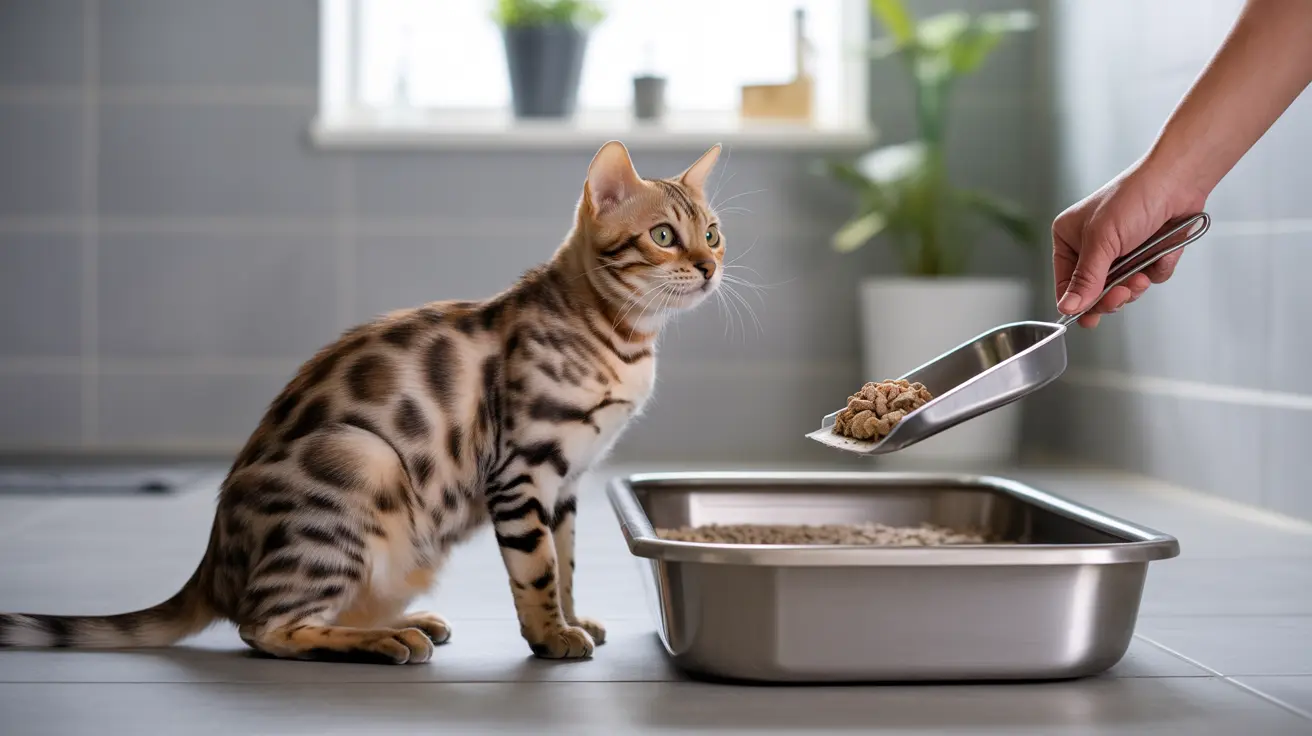Understanding Cat Constipation Emergencies
Cat constipation can quickly escalate from a minor inconvenience to a life-threatening emergency. As a pet owner, recognizing when your cat's constipation requires immediate veterinary attention could save your pet's life. While occasional constipation might resolve on its own, certain symptoms and situations demand urgent medical intervention.
This comprehensive guide will help you identify emergency situations, understand the serious complications of untreated constipation, and know exactly when to seek immediate veterinary care for your constipated cat.
Critical Warning Signs of Emergency Constipation
No Bowel Movement for 48-72 Hours
If your cat hasn't had a bowel movement for more than 2-3 days, this alone warrants veterinary attention. The situation becomes especially urgent when accompanied by:
- Frequent unsuccessful attempts to defecate
- Crying or vocalization while using the litter box
- Lethargy or depression
- Loss of appetite
- Vomiting
Severe Physical Symptoms
Watch for these emergency indicators that require immediate veterinary care:
- Visible abdominal distention or bloating
- Signs of extreme pain when touched around the belly
- Complete inability to pass any stool (obstipation)
- Weakness or collapse
- Blood in or around the anal area
Life-Threatening Complications
Megacolon Development
Untreated constipation can lead to megacolon, a serious condition where the colon becomes permanently enlarged and loses its ability to contract properly. This condition often requires surgical intervention and can be life-threatening if not addressed promptly.
Systemic Health Impact
Severe constipation can cause:
- Toxic buildup in the body
- Dehydration
- Electrolyte imbalances
- Kidney stress
- Potential organ failure in extreme cases
Prevention and Home Management
While severe cases require emergency care, you can help prevent constipation emergencies through:
- Maintaining proper hydration with multiple water sources
- Feeding a balanced diet with adequate fiber
- Regular monitoring of litter box habits
- Keeping your cat at a healthy weight
- Providing daily exercise opportunities
When to Seek Emergency Care vs. Regular Vet Visit
Emergency Situations (Seek Immediate Care)
- No bowel movement for more than 3 days
- Severe lethargy or collapse
- Extreme abdominal pain or bloating
- Repeated unproductive straining
- Vomiting combined with constipation
Schedule Regular Vet Visit
- Minor straining with successful bowel movements
- Slightly harder than normal stools
- Occasional constipation that resolves quickly
- Preventive care and dietary adjustments
Frequently Asked Questions
When is cat constipation considered an emergency requiring immediate veterinary care?
Cat constipation is an emergency when your cat hasn't had a bowel movement for more than 2-3 days, shows signs of severe pain, experiences vomiting, or displays lethargy and complete loss of appetite.
What are the key signs that my constipated cat needs urgent medical attention?
Key emergency signs include severe abdominal bloating, crying in pain, collapse, blood in the stool, complete inability to defecate despite straining, and significant behavioral changes like extreme lethargy.
Can untreated cat constipation lead to dangerous complications like megacolon or obstipation?
Yes, untreated constipation can lead to severe complications including megacolon (permanent colon enlargement), obstipation (complete blockage), and potentially life-threatening systemic issues.
How can I safely manage mild constipation at home and when should I contact my vet?
Mild constipation can be managed through increased water intake, fiber-rich diet, and exercise. Contact your vet if symptoms persist beyond 24-48 hours or if your cat shows any signs of distress.
Why are enemas and human laxatives risky for constipated cats without professional guidance?
Human enemas and laxatives can be toxic to cats, causing dangerous electrolyte imbalances and potentially severe complications. These treatments should only be administered under direct veterinary supervision.
Conclusion
Understanding when cat constipation constitutes an emergency is crucial for your pet's health and survival. Don't hesitate to seek immediate veterinary care if you observe any emergency warning signs. Quick action can prevent serious complications and ensure the best possible outcome for your feline companion.






